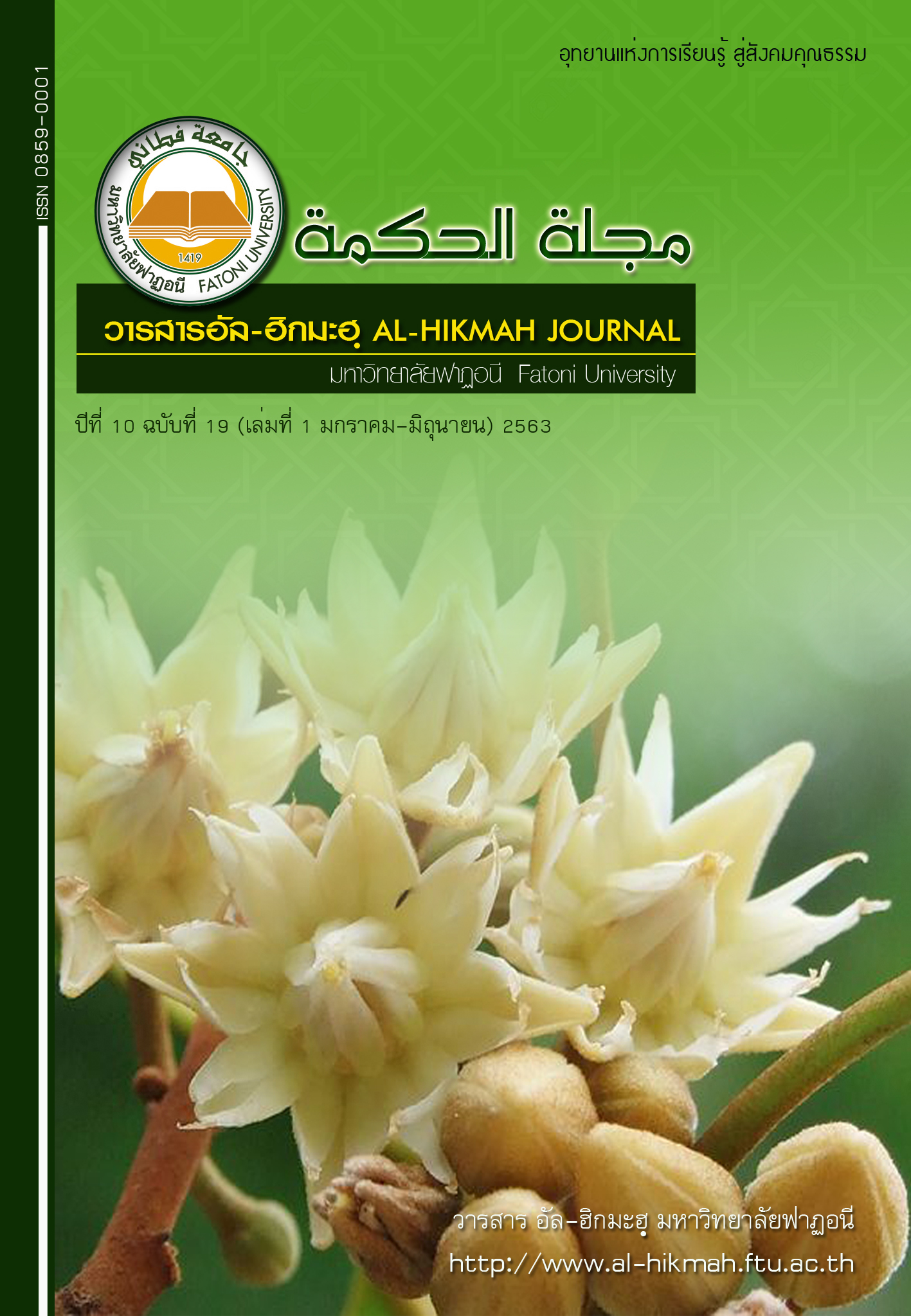การศึกษาเปรียบเทียบกฎหมายตลาดทุนอิสลามในประเทศไทยมาเลเซีย สิงคโปร์ สหรัฐอาหรับเอมิเรตส์และ สหราชอาณาจักร
Keywords:
Islamic Capital Market Law, Sukuk, Islamic FundAbstract
The value of Islamic finance assets was 2.2 trillion US Dollars in 2016 which grew for about 7% from 2015. In 2022, Islamic finance assets are expected to reach 3.8 trillion US Dollars showing a continuous expansion every year. The highest growth of Islamic finance assets rate are Sukuk markets and Islamic funds. The value of Sukuk market was 344,770 million US Dollars in 2016 which increased by 32.58% from 2012. The Islamic Mutual Funds was valued at 91,233 million US Dollars in 2016 which increased by 101% from 2012. Malaysia, the United Arab Emirates, Singapore, and the United Kingdom declared themselves and set the goals for their countries as the hub of Islamic finance. These countries have developed different Islamic finance ecosystems according to the context of their countries to support the stable and sustainable expansion in Islamic Finance.
The objective of this research is to study, analyze and compare the laws related to the Islamic capital market in Thailand, Malaysia, Singapore, the United Arab Emirates, and the United Kingdom in order to to provide suggestions for the development and improvement of laws related to the Islamic capital market that are consistent and appropriate to the Thai context. It is a qualitative method using documentary research. This research bases on comparative study and uses in-depth interviews to find some facts for the analysis by comparing issues of oversight of the Islamic capital market and Shariah governance Laws related to issuing Sukuk and Islamic mutual funds and guidelines for stock screening according to Shariah principles. This research found that the Islamic capital markets of Thailand, Malaysia, Singapore, the United Arab Emirates, and the United Kingdom are under the supervision of the governing body of the stock exchange of each country. There are 2 types of Shariah governance, which are the two tier of Shariah governance consists of Malaysia and the United Arab Emirates, and the one tier of Shariah governance consists of Thailand, Singapore, and the United Kingdom.The laws related to Sukuk, Thailand, Malaysia, and the United Arab Emirates have specific laws related to it which more or less comparable while Singapore and the United Kingdom do not have such laws. As for the laws related to Islamic mutual funds, Malaysia and the United Arab Emirates are similar to have specific laws, while Thailand, Singapore, and the United Kingdom do not have such laws. All countries have criteria for screening stocks that are Shariah-Compliant. Thailand, Singapore, and the United Kingdom use the same criteria, FTSE Russel, while the United Arab Emirates uses the Accouting and Auditing Orgnization for Islamic Financial Institutions criteria, and Malaysia has the criteria set by the Shariah Advisory Council of the Securities Commission Malaysia. This research suggests that Thailand should develop the Islamic capital market on the issues related to Shariah governance, the Laws related to Islamic Mutual funds, the stock screening criteria that are consistent with Shariah principles and Shariah risk management As a result, it can increase the confidence of investors and all parties involved and can be accepted internationally, which will impact the development of the Islamic capital market of Thailand steadily and sustainably.
References
Accounting and Auditing Organisation for Islamic Financial Institutions (AAOIFI). 2007. Sharia'a Standards. Manama : Accounting and Auditing Organisation for Islamic Financial Institutions
Arif A Jamal, Ferzana Haq, Zulkarnain Abdul Rahim. 2014. “Muslim Law Practice Committee Seminar : Introduction to Islamic Finance”. Singapore : National University of Singapore. 11 November 2014.
Internatioanal Shariah Research Academy for Islamic Finance. 2015. Islamic Capital Markets Principle and Practices. (Kuala Lumpur : Internatioanal Shariah Research Academy for Islamic Finance).
Securities Commision Malaysia. 2017. Islamic Fund and Wealth Managment Blueprint. (Kuala Lumpur : Securities Commision Malaysia)
Securities Commision Malaysia. 2019. List of Shariah-Compliant Securities by the Shariah Advisory Council of the Securities Commision Malaysia 31 May 2019
Thomson Reuters. 2018. ICD-Thomson Reuters Islamic Finance Development Report 2017.



